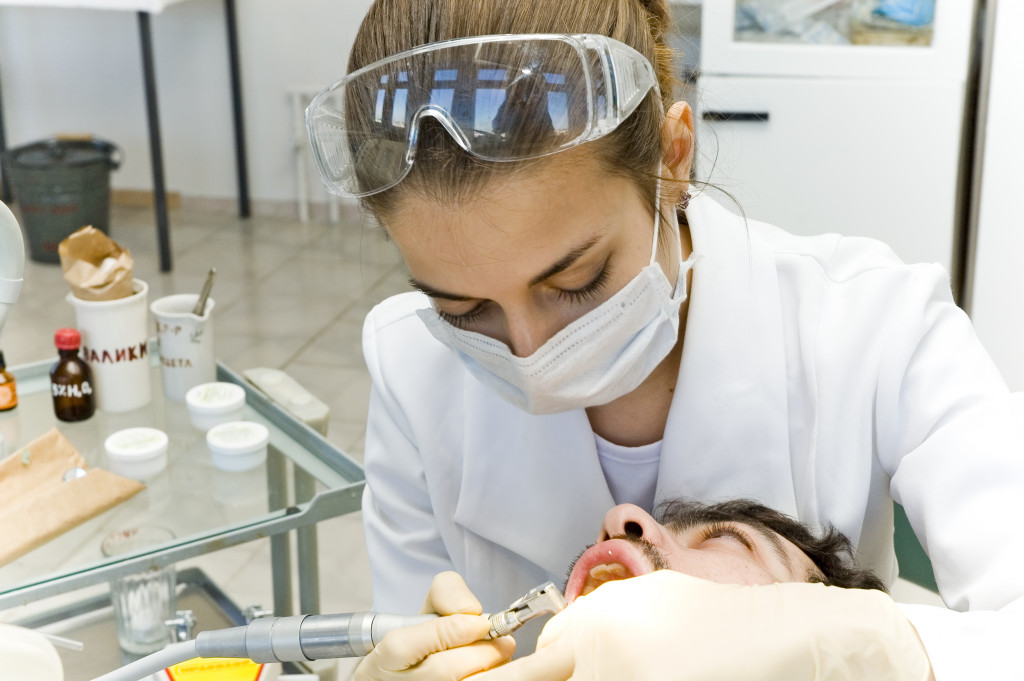Most parents would agree that taking care of their children’s oral health is one of their top priorities. But many don’t realize that the foundation for good oral health starts early, even before your child’s first tooth comes in. The habits you establish during your child’s earliest years can significantly impact their dental health down the road.
So what can you do to give your child a head start on a lifetime of healthy teeth and gums? This article will present tips from the American Academy of Pediatrics (AAP) and the American Academy of Pediatric Dentistry (AAPD).
Before Your Baby’s Teeth Come Out
Even before your baby’s teeth come out, you can start cleaning their gums daily with a soft, wet cloth. This will remove any harmful bacteria that could potentially cause infection.
It’s also essential to avoid putting your baby to bed with a bottle of milk, formula, or juice. The sugars in these liquids can contribute to the development of cavities. Do not make your baby get used to having a bottle to lull them to sleep.
When Your Baby’s Teeth Do Come In
As soon as your child’s teeth come in, you should start brushing them at least once a day with a dab of fluoride toothpaste no bigger than a grain of rice. Use a soft, clean cloth or gauze pad to wipe the tooth and gum surfaces. You can also use a small, soft-bristled toothbrush designed for infants.
You should take your baby to a dentist within six months of their first tooth coming in, and every six months after that for regular check-ups and cleanings. This is when you establish your family dentist’s office as your baby’s dental home. That means your dentist will be taking care of the child’s teeth through the years.
Having a regular dentist will make your child feel comfortable with dental care. It must become a pleasant routine and nothing to be afraid of.
During the Toddler Years
As your child grows, you will need to use a pea-sized amount of fluoride toothpaste and brush their teeth at least twice a day. It’s important to continue taking them to the dentist every six months for regular check-ups and cleanings
You should also start teaching your child how to floss their teeth as soon as they have two teeth touching each other. You can use floss picks designed for kids or regular dental floss. Show your child how to wrap the floss around each tooth and then under the gum line.
Encourage your child to drink plenty of water throughout the day. Water is essential for good oral health and it’s crucial for kids because it helps rinse away harmful sugars and acids.
Do not let your child get used to sipping on juice for several minutes throughout the day. This keeps the teeth always in contact with sugar and leads to decay. Even fresh fruit juice has sugar. Encourage them to finish their juice quickly and follow this with a small drink of water.
This is the time to start the habit of limiting sweets as occasional treats. You must also explain to your kids the harmful effect of sweets on their teeth. Make them brush their teeth after having the rare sweet treat.
As your child enters preschool, you should continue brushing and flossing their teeth for them. But you can also start teaching them how to do it themselves. Let them practice on a few teeth until they get the hang of it.

The Preteen Years
By the time your child reaches preteens, they should be brushing their own teeth thoroughly at least twice a day using fluoride toothpaste. But they might still need help flossing properly.
Make sure to take them for regular dental check-ups and cleanings every six months. The dentist will be able to spot any potential problems early on and provide treatment if necessary.
Teenage Years
The teenage years are when your child should have all the skills they need for good oral hygiene. But that doesn’t mean you shouldn’t be involved in their dental care.
Make sure they are still going to the dentist every six months for regular check-ups and cleanings. And help them develop good habits by reminding them to brush and floss regularly.
You should also continue to limit their intake of sugary foods and drinks. Too much sugar can lead to cavities, gum disease, and other problems. Encourage your teenager to eat a balanced diet that includes plenty of fresh fruits and vegetables. A healthy diet is essential for good oral health.
Establishing Good Oral Health Habits Early On
It’s never too early to start taking care of your child’s teeth. By following these tips from the AAPD and AAP, you can help your child develop good oral health habits that will last a lifetime. That will also mean a lifetime of healthy smiles for your kids.




